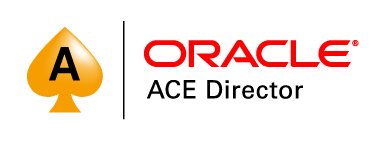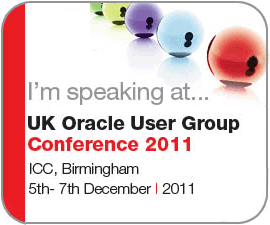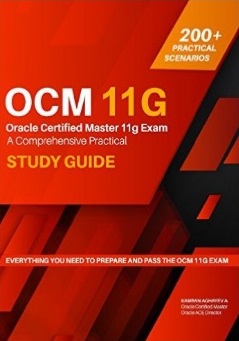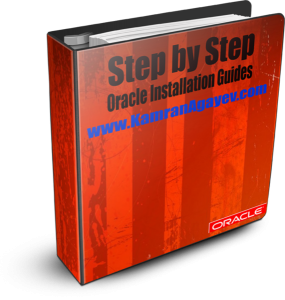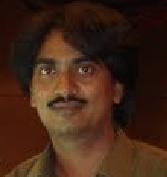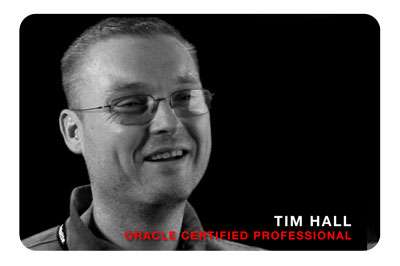
Tim Hall is an Oracle Certified Professional (OCP) DBA (7, 8, 8i, 9i, 10g, 11g), Oracle Certified Associate (OCA) PL/SQL Developer, Oracle ACE Director and was chosen as Oracle ACE of the Year 2006 by Oracle Magazine Editors Choice Awards. He has been involved in DBA, design and development work with Oracle databases since graduating from university in 1994.
He has gained a wide knowledge of the Oracle software stack and has worked as a consultant for several multi-national companies on projects ranging from real-time control systems to OLTP web applications.
Since 2000 I’ve published over 350 articles on his website (www.oracle-base.com) covering a wide range of Oracle features. He has also published two books, “Oracle Job Scheduling” and “Oracle PL/SQL Tuning“.
Here is our interview:
Could u please provide answer to the following questions as follows:
1. Brief information about yourself and your family
I’m a DBA/Developer and have been working with Oracle for approximately 15 years.
2. Your education
I did a PhD in Molecular Biology before getting a job in IT.
3. Your experience with Oracle. When you started first? Has it been interest of your side or just a coincidence?
I got my first job with Oracle completely by accident. I had no knowledge of the company or their products. I didn’t even really know what an RDBMS was.
4. What was the motive behind to prefer Oracle? Who you have been influenced by?
Oracle is what I’ve always done. I’ve worked with other database products (SQL Server, mySQL, DB2, MS Access), but nowhere near as much as I’ve worked with Oracle, so I guess I’m a little biased.
5. What would your preference of profession if not Oracle?
If I knew I would do it. 
6. What motivates you in your job?
I’m interested in technology. I like to play around with things. Sometimes the day job can get a little mundane, but the technology always keeps you on your toes.
7. Do you give lectures on Oracle?
Over the last years I’ve been speaking at conferences all over the world and I’ve been doing some 2 day PL/SQL workshops in Europe for Oracle University as part of their Celebrity Series.
8. Have you authored any book in Oracle?
I’ve written 2 books (Oracle Job Scheduling & Oracle PL/SQL Tuning).
9. Do you manage with your time as to read books on Oracle? What is the name of the book that you read recently?
I mostly read when I’m traveling. Over the last couple of years I’ve read the Vampire Chronicles series by Anne Rice and the Discworld series by Terry Prachett.
10. What do you think on OTN forums?
I don’t visit the OTN forums too often. I have my own forum so that keeps me fairly busy.
11. Do you refer to the documentation? And how often does it happen?
I refer to the documentation constantly. When I have a question, it’s the first place I go. When I answer a question, I check my answer against the documentation before i post it.
12. What is the biggest mistake you have ever made during your DBA career?
The longer you work with a product, the easier it is to start thinking you know it inside out. Then one day someone who knows nothing about it asks you a questions and you are lost for an answer. The biggest mistake is when you start thinking you know it all. I think we all go through a period where we think we are bulletproof. With age and experience you get a bit more humble and sit back and smile at the new kids on the block who are making all the waves.
13. What was your greatest achivement as an Oracle DBA?
My greatest achievement is the fact I am still a techie after 15 years. Many really good technical people lose their desire and move out of the technical roles into management. Being a techie takes a lot of work. It would be far easier to move into a less technical role, but that’s not what I’m about.
14. What is your priority to manage the challenges you face?
Whenever I try to plan anything, life throws a spanner in the works. So now I never plan anything big in my life. I let things happen to me. The challenge is to keep an open mind so you don’t talk yourself out of opportunities.
15. How would you describe the essence of your success? According to your definition of success, how successful have you been so far?
It’s impossible to be objective about your own achievements. I don’t feel successful or unsuccessful. I am just me, doing what I do.
16. What are your best skills which make you differ from others?
I guess I am quite driven when I’m interested in something. I tend to throw myself into things. I’m not obsessed by money or possessions. I just want to be involved.
17. What’s your major weakness?
I find it hard to motivate myself to do things I’m not interested in. It takes a lot of mental effort to motivate me to cut the grass in my garden. 
18. Have you ever lost your spirit? If so, what has been the reason and how have you overcome it?
If I’m interested in something I never question my motives. If something goes wrong it is almost fun as it leads me down a new path.
19. What is the next success you would like to attain and your efforts to this end?
I have no plans or desires. I just want to carry on doing what I want to do, when I want to do it.
20. How do you balance your daily life with your career?
I have never considered trying to balance anything. Things just fall into place if you let them.
21. Please describe your one day summary of activities?
At the moment I am traveling a lot, so there is never a normal day. I might be teaching, speaking at a conference, traveling, or just at home playing with the computer.
When I’m doing regular work, my day is like every other DBA/Developer in the world.
22. How many hours do you work and sleep in a day?
Every day is different. I’m on the computer from the time I get up until the time I go to bed, unless something forces me not to be.
23. Where and how do you spend your daily, weekly and annual holidays?
When I’m not in front of the computer I visit my family and do some exercise (Swimming, Yoga, Karate, Gym)
24. Do you think about Oracle during vacations?
If possible I’m online during holidays. I always check my mails and answer questions on my forum if I can.
25. Do you have time or motivation to go in for any sports? If yes, which kind of sport do you go in for?
I like swimming, Yoga, Karate and I go to the gym most weeks. Sometimes it’s only possible to solve problems if you can distance yourself from them. Exercise distracts your conscious mind so your subconscious can do the work for you.
26. What’s the best funny event you have ever faced in your life?
I find almost everything amusing. My typical response to most situations is to make fun of them and laugh.
27. Do you keep pets? If so, the name please?
I like animals in their natural surroundings. I don’t really agree with the concept of pets. I don’t have a problem with others having pets. Each to their own.
28. What’s your favorite meal and non-alcoholic drink?
If it’s bad for me I like to eat it. If it’s good for me, I probably don’t like it.
29. What foreign languages do you know?
I only speak English. Most countries where English is the first language are pretty rubbish at learning other languages. It’s the curse of speaking such a widely available language.
30. What’s your average typing speed?
I have no idea. I type quite fast, but if I think about it I will slow down to a crawl.
31. Have you ever get involved in politics?
I have the unenviable trait of always seeing both side to the story. I would make a terrible politician.
32. What are your hobbies?
Playing with technology.
33. How do you spend your free time?
Playing with technology.
34. What’s your biggest ambition?
I never think about that sort of thing. I just do stuff. 
35. What would be your advice to the beginners in Oracle?
Read the manuals. Always check everything people say to you. Things change and most people aren’t too good at adapting to change.
36. Would you like your children to follow in your footsteps or take a different path in life?
I have no children. If I ever have any I want them to do what they want to do, not what other people expect them to do.
37. Do you have any followers of you?
I guess lots of people know who I am because of my website and the Oracle ACE Director program, but I’m just a regular guy. Followers implies there is something to follow.
38. What is your vision on the future of Oracle?
Oracle will continue to expand and every year my skills will be a smaller and smaller subset of the total product set. That’s the way it should be.
39. Could you please take a photo in your office near to your desktop?
No way. My home office is a mess. I’m overly neat at work, but at home I’m a slob.
 or you’ll be retired from the job )
or you’ll be retired from the job )
